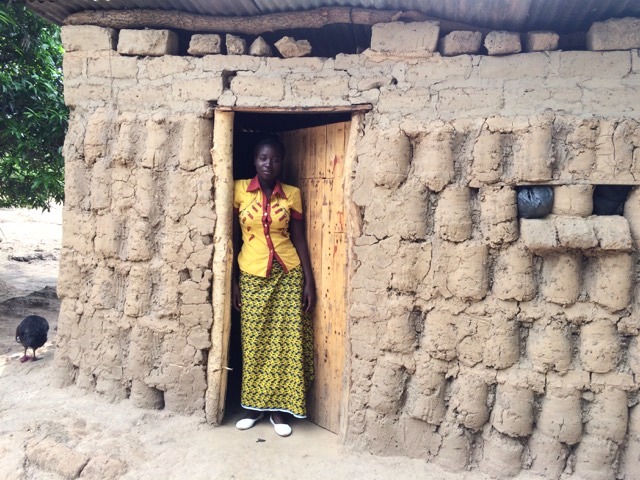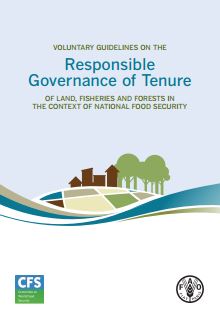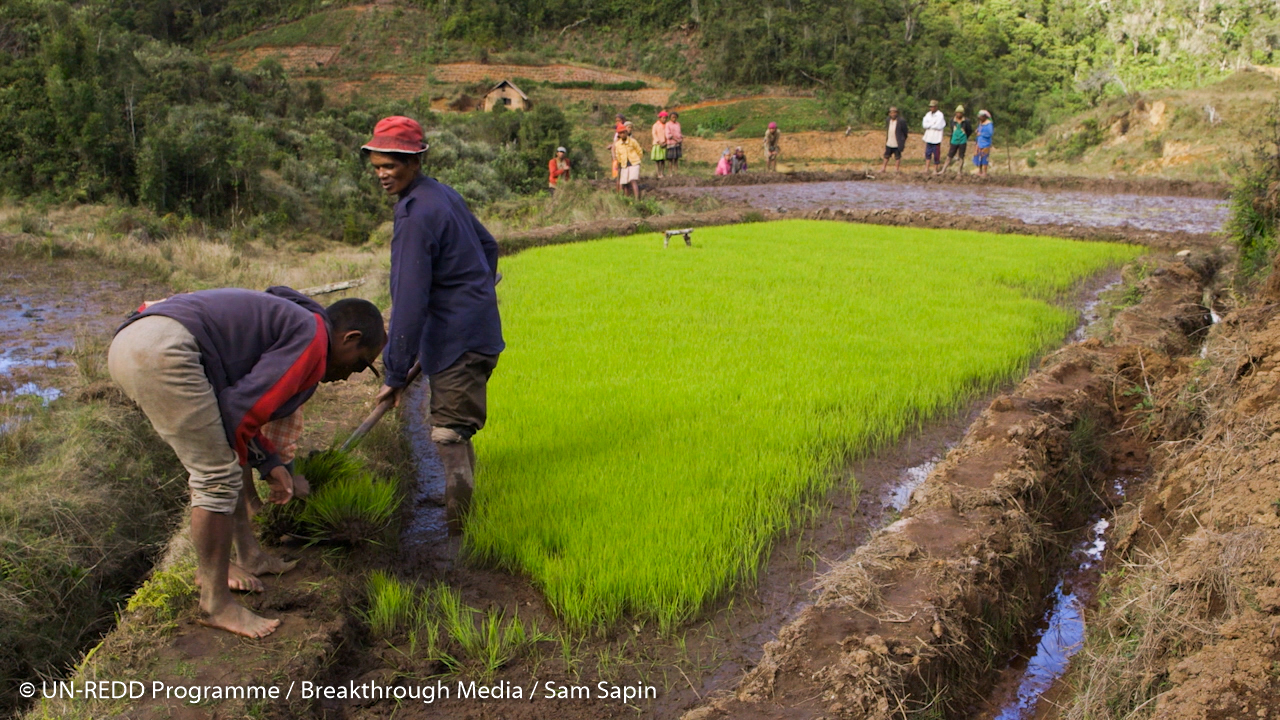When the UN-REDD Programme intensified its work to address tenure issues within the context of REDD+, the challenge involved more than delivering financial and technical support to partner countries. It soon became evident that many countries, while recognizing that resolution of tenure issues was fundamental to REDD+ success, were nonetheless uneasy about taking the first steps. Particularly in situations where laws and policies governing land are not clear, where rights to land are customary rather than statutory, and where conversion pressures on land are high, the mere mention of tenure in official circles can cause some apprehension.
Furthermore, tenure issues cut across sectors - agriculture, energy, and rural development, among others – and thus, require cooperation across government ministries and among multiple stakeholders. Although recognition of the need to address tenure issues was growing, political barriers were not easy to break down. Gradually, however, some prescient UN-REDD Programme countries started to take the lead in this area, demonstrating how efforts towards REDD+ and tenure reform can be mutually reinforcing.
With support from the UN-REDD Programme, through FAO, a number of partner countries, including Benin, Madagascar, Malawi and Tunisia, began efforts in this regard with a general assessment of their tenure regimes in the context of REDD+. These assessments applied a participatory and consultative approach involving representatives from civil society organizations, indigenous groups and academia, among others. The internationally-endorsed Voluntary Guidelines on the Responsible Governance of Tenure of Land, Fisheries and Forests (VGGT) served as the base for informing and guiding work on assessing tenure in the context of REDD+.

The first tenure assessments in those four countries showed similarities in several respects, yet diverged in their results. All assessments resulted in a clear set of recommendations for next steps, with Madagascar providing a particularly detailed roadmap to guide future investment. The assessments in both Benin and Tunisia sparked increased interest in the VGGT. These countries subsequently organized national workshops to raise awareness on this landmark document and discuss its usefulness in the country context.. These workshops included discussions on cross-sectoral tenure challenges and solutions in the forestry sector and the implications for REDD+. For Tunisia, the tenure assessment included a meticulous review of archival data on forest land to determine the location and extent of forest claims throughout the country. Plans are in place for pilot activities to clarify forestland claims in several districts.
In Sri Lanka, an assessment was designed and conducted as part of the development of the country’s national REDD+ strategy. The assessment applied criteria from the VGGT to analyze the tenure implications of a wide array of proposed REDD+ actions to address deforestation and forest degradation. The assessment helped Sri Lanka to set priority REDD+ actions for targeted investments.
Meanwhile, other countries also ramped up their tenure activities. Uganda decided to focus on the integration of forest and land tenure data as a first step to enable better and more informed policy making. The pros and cons were weighed for a number of options on integrating land tenure data held by different government ministries.
Laos, Viet Nam, and Zambia also conducted studies focused on specific topics related to forests and tenure. In Laos, village forestry was examined, while researchers in Zambia are delving into the potential for community forestry management and private forestry management within the framework of REDD+. In Viet Nam, the forest land allocation system was reviewed. A policy brief with recommendations for the government is expected after research found that forest land allocation integrating clear tenure rights was well-aligned with REDD+ objectives and should be integrated in national and provincial REDD+ action plans.
The UN-REDD Programme has also played a role in bringing together country partners to share their experience in addressing tenure issues in the context of REDD+, as seen in the subregional South-South exchange organized in Zambia in 2015.
These experiences show that countries involved in the UN-REDD Programme have taken different approaches to address tenure within the context of REDD+. Yet all have initially prioritized a better understanding of the issues, whether it be a general assessment, a more focused study, or an exchange. These activities may be relatively small steps in comparison to the extensive needs that are apparent in most countries for tenure reform and increased forest tenure security. However, they indicate the potential of REDD+ to increase political will and open a space for dialogue and progress on the often sensitive issue of tenure.

Voluntary Guidelines on the Responsible Governance of Tenure of Land, Fisheries and Forests (VGGT):

